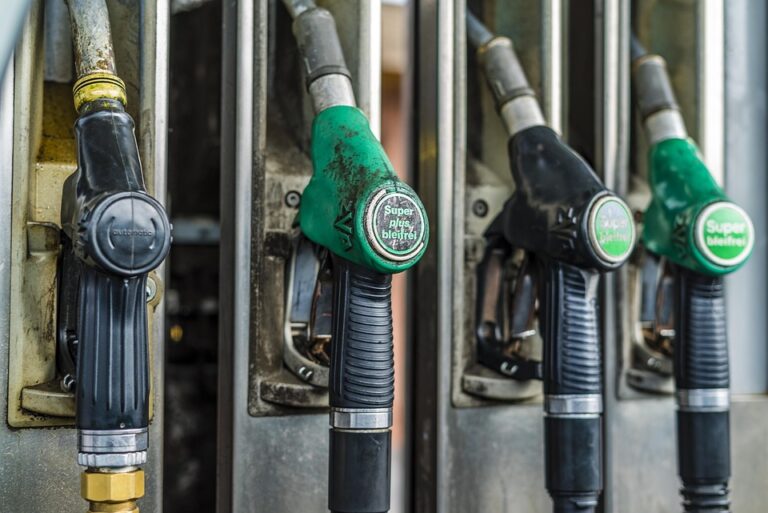Decoding Diesel and Petrol: Chemistry Behind the Fuels
In the world of automobiles, the debate between diesel and petrol has been a long-standing one. With each type of fuel offering its unique advantages and disadvantages, understanding the chemistry behind diesel and petrol is essential for making informed decisions about vehicle performance and environmental impact. In this article, we will delve into the molecular composition, combustion processes, and overall characteristics of diesel and petrol, equipping readers with the knowledge to choose the right fuel for their needs.
Understanding the Chemistry of Fuels
Fuels are primarily composed of hydrocarbons, which are organic compounds made up of hydrogen and carbon atoms. Both diesel and petrol are derived from crude oil through refining, but their chemical structures and properties significantly differ.
Composition of Diesel and Petrol
Diesel Fuel:
- Molecular Structure: Diesel is made up of longer-chain hydrocarbons, typically containing between 12 to 20 carbon atoms. This structure results in a denser fuel with a higher energy content.
- Additives: Diesel often includes additives to enhance performance, prevent wax formation, and improve ignition properties.
Petrol (Gasoline):
- Molecular Structure: Petrol primarily consists of shorter-chain hydrocarbons, usually containing between 5 to 12 carbon atoms. This lighter structure allows for easier vaporization and combustion.
- Additives: Petrol formulations often include octane boosters and detergents to optimize performance and keep the engine clean.
Key Chemical Differences
One of the most significant differences between diesel and petrol fuels lies in their combustion processes, largely influenced by their chemical structure.
Combustion Processes: Understanding Ignition
The combustion of diesel and petrol fuels occurs through different mechanisms, which impacts engine efficiency and emissions.
Diesel Combustion
Diesel engines operate on the principle of compression ignition. The air in the combustion chamber is compressed to such an extent that it heats up to a temperature high enough to ignite the diesel fuel injected into the chamber.
Benefits of Diesel Combustion:
- Higher Efficiency: Diesel engines typically achieve a higher thermal efficiency compared to petrol engines, which translates to better fuel economy.
- Torque Production: Diesel’s high energy density provides better torque, making it ideal for heavy-duty applications such as trucks and buses.
Petrol Combustion
In contrast, petrol engines operate on the principle of spark ignition. A mixture of air and petrol is compressed in the engine, and a spark from the spark plug ignites the fuel-air mixture.
Benefits of Petrol Combustion:
- Quieter Operation: Petrol engines tend to run more quietly than their diesel counterparts, contributing to a smoother driving experience.
- Lower Initial Cost: Generally, petrol engines are less expensive to manufacture and sell, making them more accessible for consumers.
Environmental Impact: Emissions and Regulations
The impact of diesel and petrol on the environment is a critical consideration in today’s automotive landscape.
Emissions from Diesel Engines
Diesel engines produce higher levels of nitrogen oxides (NOx) and particulate matter, which can pose health risks and contribute to air pollution. However, advancements in technology, such as diesel particulate filters and selective catalytic reduction systems, are helping to reduce these emissions.
Emissions from Petrol Engines
Petrol engines, on the other hand, emit higher amounts of carbon monoxide (CO) and hydrocarbons. While petrol engines tend to produce fewer NOx emissions, they still have a significant environmental footprint, particularly in urban areas.
Choosing the Right Fuel for Your Vehicle
When deciding between diesel and petrol, vehicle performance, usage, and environmental concerns should be considered.
Factors to Consider
-
Driving Habits:
- Long Distance vs. Short Trips: Diesel engines excel in fuel efficiency over long distances, while petrol engines are better suited for city driving and short trips.
-
Vehicle Type:
- Heavy-Duty vs. Light-Duty: Diesel is typically favored for heavy-duty vehicles, whereas petrol is preferred for lighter passenger vehicles.
- Maintenance Costs:
- Long-Term Expenses: Diesel engines often require more expensive maintenance and repairs, which can be a crucial factor in total cost of ownership.
Conclusion: Fueling Your Decision
Understanding the chemistry and performance characteristics of diesel and petrol is essential for making informed choices in the automotive landscape. Whether you prioritize fuel efficiency, environmental impact, or cost, each fuel type offers distinct advantages.
As the industry continues to evolve with alternative fuels and hybrid technologies, staying informed about diesel and petrol fuels is key to embracing the future of driving. For more insights into automotive trends and technologies, visit Buzzo.Live to keep up with the latest developments in the automotive industry.


